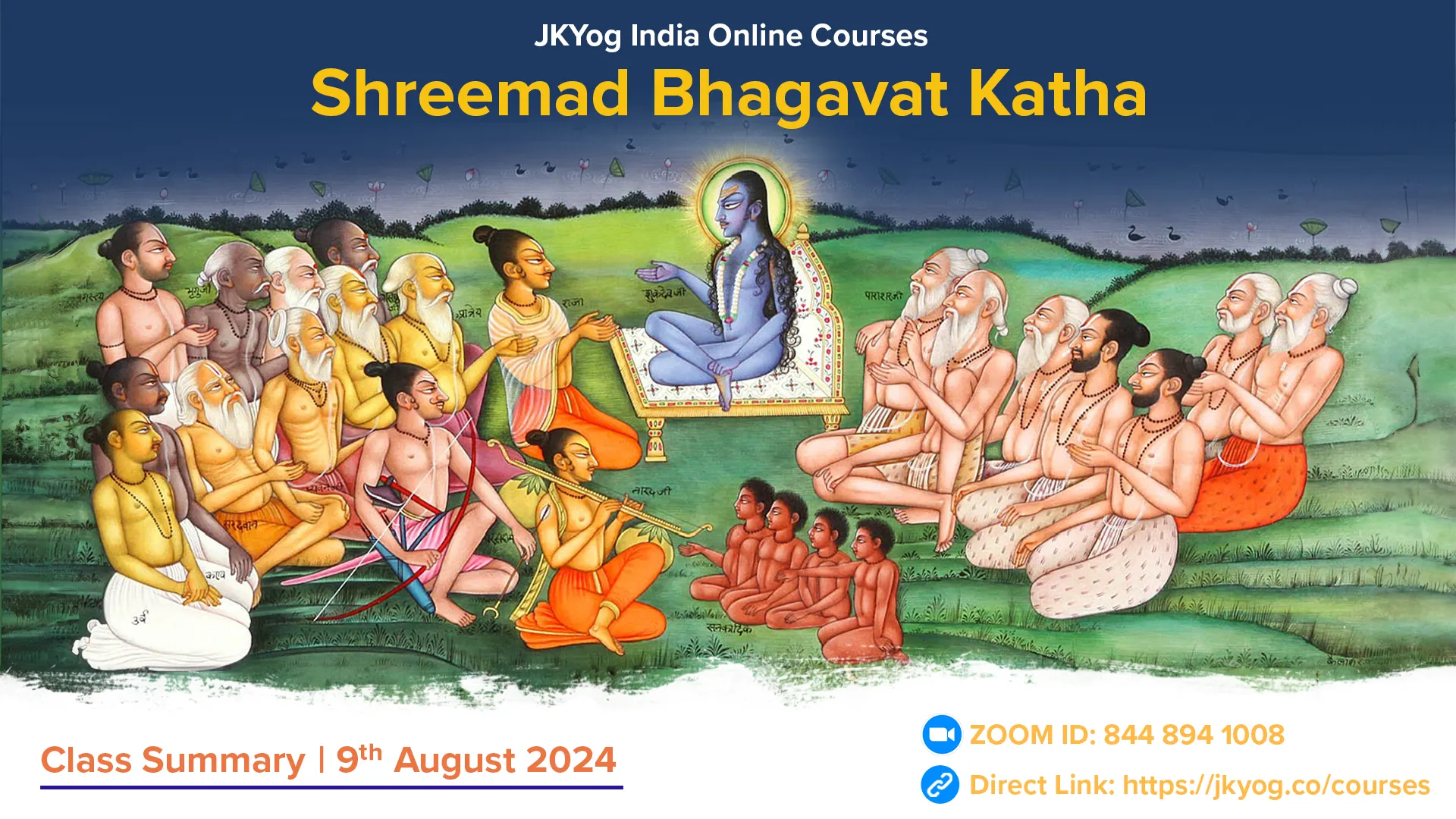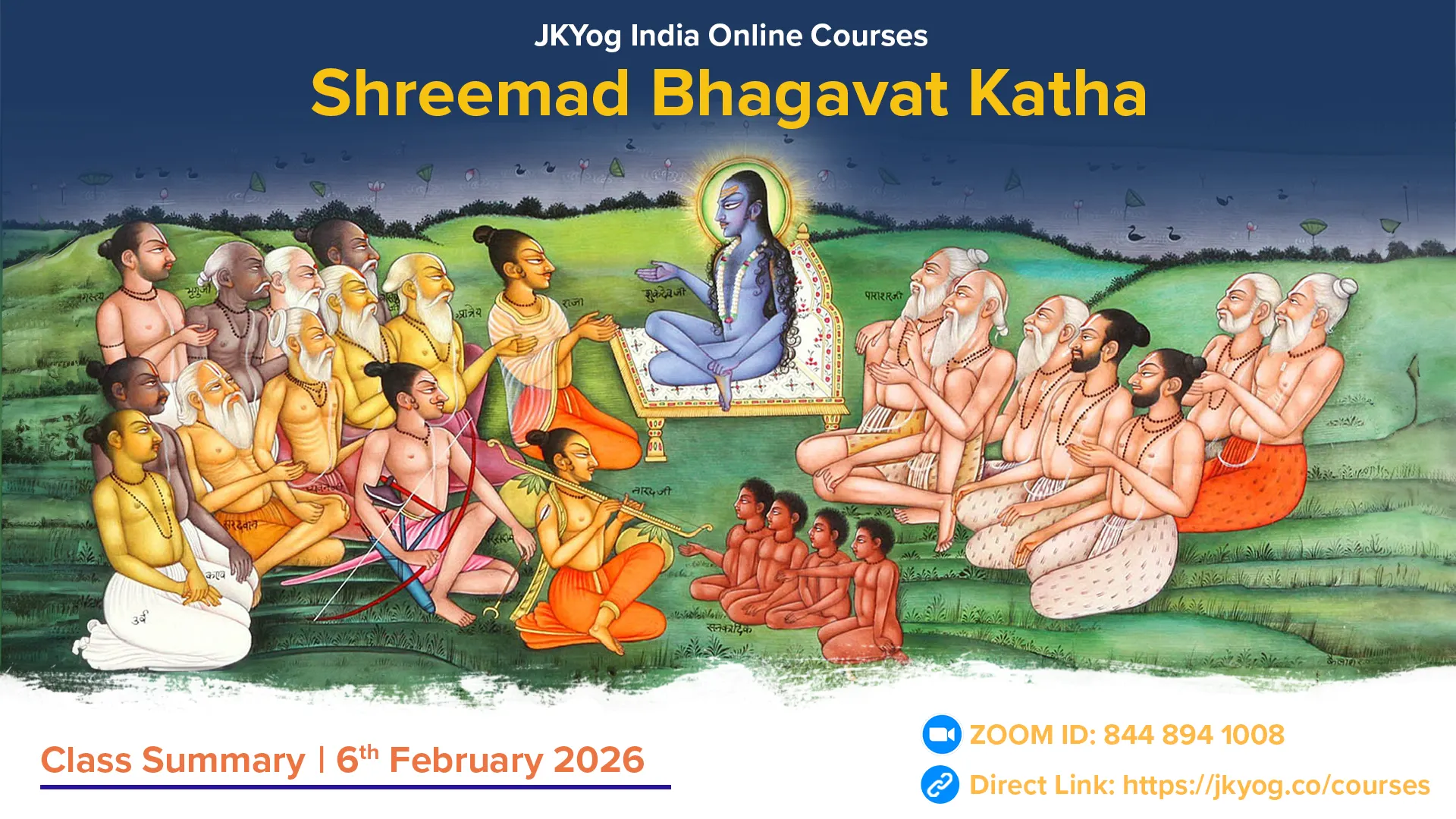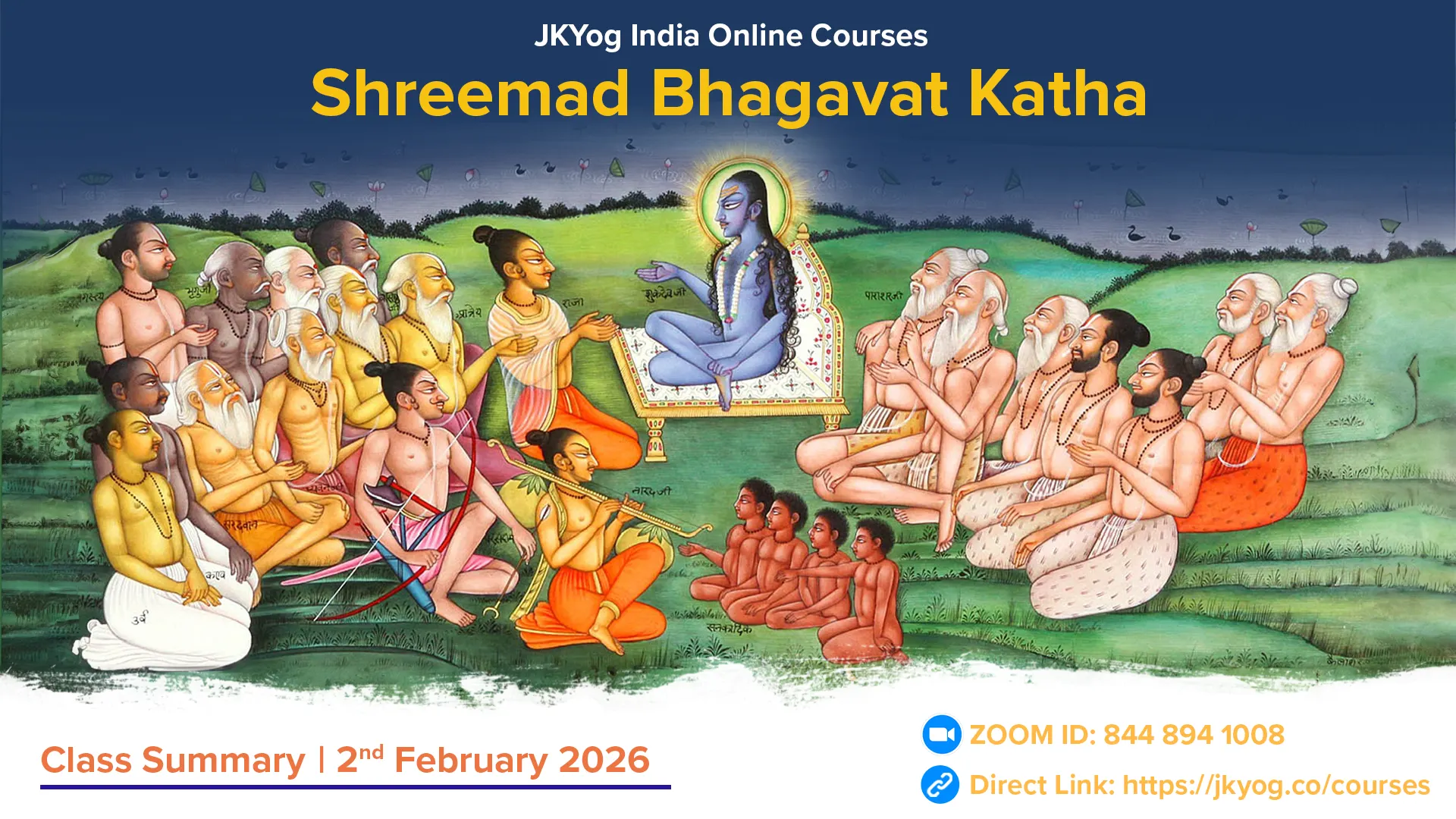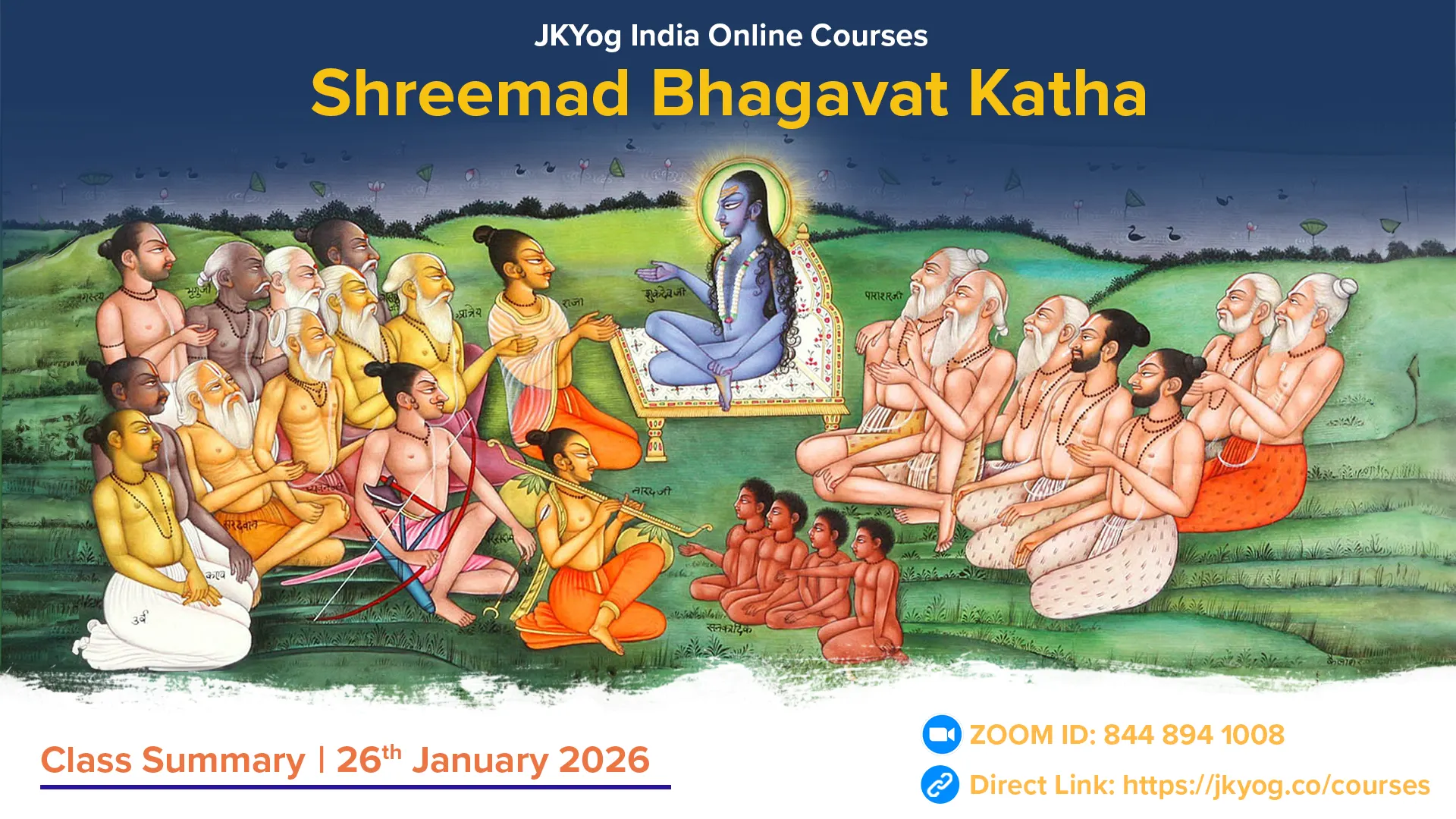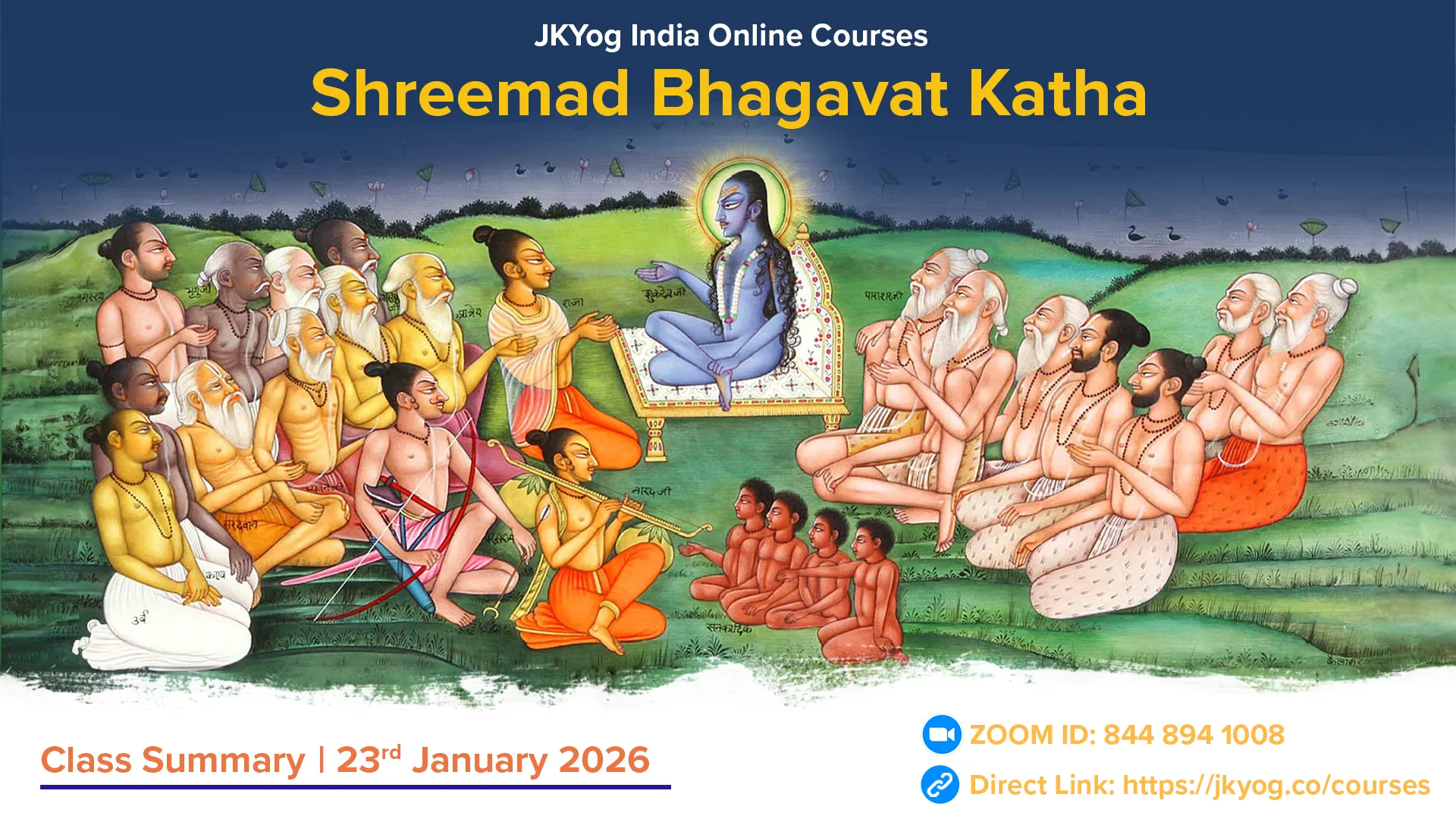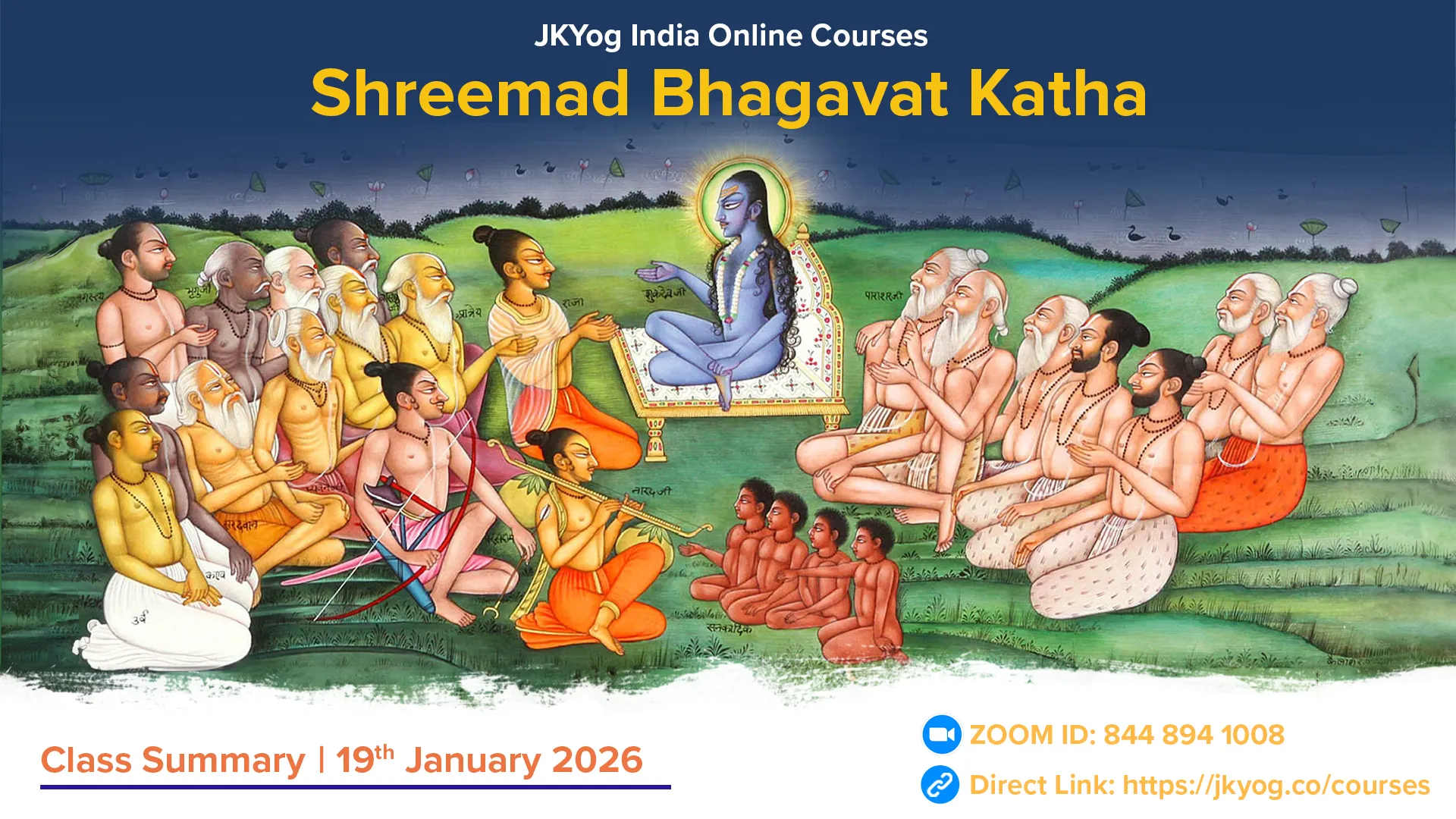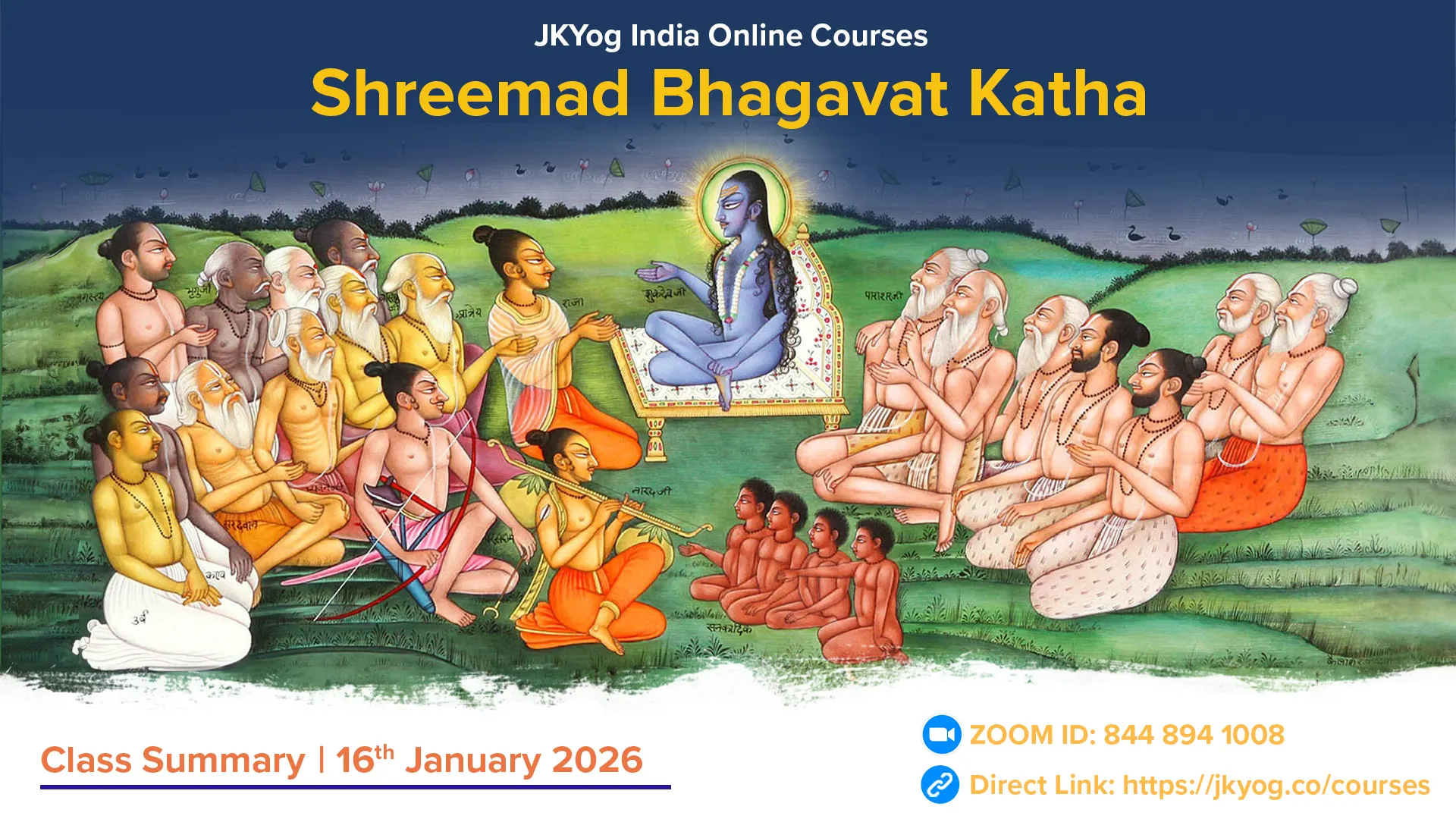Shreemad Bhagavat Mahapuran- Canto: 2, Chapters: 3
In the third chapter of the second canto of the Shreemad Bhagavat Mahapuran, Shree Shukadevji tells Parikshit which deity one should worship according to their desires. This worship leads to worldly pleasures, which is why devotees and those seeking liberation are not very interested in it.
- Desire for Brahmatej: Worship Brihaspati.
- Desire for the power of the senses: Worship Indra.
- Longing for children: Worship the Prajapatis.
- Desire for wealth: Worship the Mayadevi.
- Desire for brilliance: Worship Agni.
- Desire for wealth: Worship the Vasus.
- Desire for valour: Worship the Rudras.
- Desire for heaven: Worship the Devas.
- Aspiration for a kingdom: Worship the Vishwedevas.
- Desire for longevity: Worship the Ashwini Kumaras.
- Desire for nourishment: Worship Prithvi (Earth).
- Desire for prestige: Worship the earth and sky.
- Desire for beauty: Worship the Gandharvas.
- Desire to be the master of all: Worship Brahma.
- Desire for fame: Worship Yagyapurush.
- Desire for treasure: Worship Varun.
- Desire for knowledge: Worship Bhagwan Shankar.
- To maintain love between husband and wife: Worship Parvatiji.
- To acquire Dharma: Worship Bhagwan Vishnu.
- To protect the lineage: Worship the ancestors.
- To remove obstacles: Worship the Yakshas.
- For pleasures: Worship the moon.
- To attain selflessness: Worship the Supreme Being Narayan.
The Ultimate Goal of Worship and Devotion
When worshipping these deities, it is crucial to remember that the deity to whom one dedicates oneself is the one with whom one will achieve union after passing from this life.
Yanti devavrata devan pitrun yanti pitruvratah,
Bhutani yanti bhutejya yanti madyajino'pi mam.
Meaning: Worshippers of the celestial gods take birth amongst the celestial gods, worshippers of the ancestors go to the ancestors, worshippers of ghosts take birth amongst such beings, and My devotees come to Me alone. (Gita 9.25)
Thus, Jagadguru Shree Kripaluji Maharaj says that a true devotee of God asks for:
Nahi chaha svargaadik dham, nahi chaha vaikuntha lalaam,
Chaha Shyam prem nishkam, puni chaha seva aviram.
Meaning: I have no desire for heavenly realms or Vaikuntha (abode of Vishnu), and I only seek selfless love and the incessant service of Shyam (Krishna).
Shukadevji further emphasises and says:
Akamah sarvakamo va moksha-kamo udaradhiih,
Tivrena bhakti-yogena yajet purusham param.
Whether one is desireless, desirous of all things, or seeking liberation,
One should worship the Supreme Person with intense devotion through Bhakti-Yog. (Bhagavat 2.3.10)
Avaneva yajatamiha nihsreya-sodayah,
Bhagavat-yacahlo bhavo yad bhagavata-sangatah.
Among all worshippers, the greatest benefit is associating with loving devotees of God and attaining unwavering love for God. (Bhagavat 2.3.11)
Jnana yada prati-nivritta-gunormi-chakra
atmaprasada uta yatra guneshva-sangah,
kaivalya-sammata-pathastvatha bhaktiyogah:
ko nirvrito harikathasu ratim na kuryat.
In the divine pastimes and stories of Bhagwan, there is rare knowledge. Through this knowledge, the darkness of illusion created by maya is dispelled. Attachment is eradicated, bliss is experienced, and one attains the divine. Once one develops a taste for such enchanting stories of Bhagwan, who would not fall in love with them? (Bhagavat 2.3.12)
The Futility of Ordinary Life
After listening to this conversation between Shukadevji and Parkishit, Shaunakji asks Sutji, "What else King Parikshit asked Shukadevji?" Having put this question, Shaunakji begins to sing the glory of Bhagwan's leela-katha shravanam (listening to God's pastimes) and the devotees' association.
He says that in the assembly of saints, Bhagwan's sweet pastimes and stories are recounted, which are highly auspicious to listen to. Even as a child, King Parikshit, the great warrior of the Pandavas, derived the essence of Shree Krishna's pastimes while playing with toys. He is a great devotee of Bhagwan. Shree Shukadevji, who has also been immersed in the Divine since birth, naturally engages in discussions of Bhagwan's auspicious qualities in the company of saints.
A life spent singing or listening to the glories of Shree Krishna is truly meaningful. Otherwise, the lifespan of all humans is wasted. The sun gradually reduces people's lifespans by rising and setting daily. Simply living life is not enough; listening to Bhagwan's pastimes is essential.
Shaunakji questions, "Do trees not live? Do the bellows of a blacksmith not breathe? Do other domesticated animals in the village not eat, drink, or reproduce like humans?"
He further compares the uselessness as follows:
- Ears: A person who never listens to the stories of Bhagwan Shree Krishna has ears like snake holes.
- Tongue: A tongue that does not sing the glories of Bhagwan's pastimes is like the croaking tongue of a frog; it is better off not existing.
- Head: A head that never bows to the feet of Bhagwan Shree Krishna is merely a burden, even if adorned with silk and a crown.
- Hands: Hands that do not serve or worship Bhagwan are like dead hands, even if decorated with gold bangles.
- Eyes: Eyes that do not behold the forms, holy places, or rivers reminding one of Bhagwan are as useless as the eye patterns on a peacock's feathers.
- Feet: Feet that do not travel to the places of Bhagwan's pastimes are like trees, which, despite having the power to move, remain stationary.
- Dust of Saints' Feet: A person who has never placed the dust of the feet of Bhagwan's devoted saints on their head is dead even while alive.
- The fragrance of Tulsi: A person who does not appreciate the fragrance of Tulsi leaves offered to Bhagwan's feet is like a corpse that breathes but is lifeless.
Shaunakji concludes by saying, "O Sutji! A heart that does not melt and flow towards Bhagwan, even after hearing and chanting His auspicious names, is not truly a heart but merely iron. When the heart melts, tears flow from the eyes, and every pore of the body becomes alive with divine bliss. Dear Sutji! Your words fill our hearts with sweetness. Therefore, please kindly narrate to us the conversation where Shree Shukadevji, the supreme devotee of Bhagwan, responded to the profound questions asked by Parikshit."
Shiva-Parvati Dialogue: Ramcharitmanas
Goswami Tulasidas beautifully encapsulates these sentiments in Bal-Kand of 'Ramcharitmanas.'
Tadapi asanka keenhihu soi,
Kahat sunat sab kar hit hoi.
Jinh Hari katha suni nahin kaana,
Shravan randhra ahibhavan samana. (1)
Nayananhi sant daras nahin dekha,
Lochan morpankh kar lekha.
Tesir katu tumbar samatula,
Je nahin namat Hari Guru pad mula. (2)
Jinh Hari bhakti hridaya nahin aani,
Jeevat sav samana tehi prani.
Jo nahin karai Ram gun gana,
Jih so dadur jih samana. (3)
Kulis kathor nithur soi chhati,
Sun Hari charit na jo harshati.
Girija sunahu Ram kai leela,
Sur hit danuj bimohansila. (4)
Meaning: Bhagwan Shiva tells mata Parvati, "(though you do not doubt in your mind) still you have raised the same old doubt that speaking and listening to these topics will benefit everyone. Ears that have not heard the stories of Bhagwan are like holes in a snake's burrow. (1)
Those who have not seen the saints with their eyes have eyes that are like the false eyes on a peacock's feathers. Such heads are like bitter gourds, which do not bow to the feet of Shree Hari and the Guru. (2)
Those who have not placed devotion to Bhagwan in their hearts are like living corpses. The tongue that does not sing the glories of Shree Ramachandraji is like the tongue of a frog. (3)
The heart is as hard and merciless as a thunderbolt if it does not rejoice at hearing the divine deeds of Bhagwan. O Parvati! Listen to the pastimes of Shree Ramachandraji, which are beneficial for the gods and particularly enchanting for demons. (4)
Summary: JKYog India Online Class- Shreemad Bhagavat Katha [Hindi]- 09.08.2024

